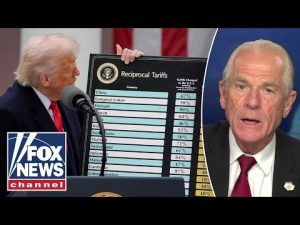In an era where immigration policies are hotly debated, a recent event involving a federal judge has sparked controversy and discussion. It seems that this judge decided to halt the deportation of a group of individuals presumed to be gang members from Venezuela. The planes carrying them were actually in the air when the order came through. The judge’s actions raise serious questions about the limits of judicial power and the handling of immigration cases by the courts.
The first glaring issue is the judge’s authority to make such a decision. According to some legal experts, the judge might have exceeded his powers. The Trump administration, with experts like Stephen Miller and Kristy Noem, has typically been the ones determining the propriety of such actions. It seems audacious for an unelected judge to overrule them without thorough examination.
Concerns grow when considering the logistics involved. When planes are ordered to turn back mid-flight, there are real-world implications, like fuel supply and navigation in international airspace. This judge apparently issued an oral ruling on a Saturday morning, demanding immediate action, which led to chaos as authorities scrambled to comply. There is a clear procedural expectation that such rulings are documented in writing, lending clarity and official status to prevent misunderstandings.
Furthermore, it is reported that there are multiple legal claims, including constitutional and statutory ones, regarding these actions. Some argue that the judge should involve himself due to civil rights implications, questioning if the government’s actions violate due process. The reality is that these cases are complex, involving technical nuances surrounding declarations of war and invasions, as the Trump administration seeks to label this influx as an incursion to justify its actions.
This situation underscores the perpetual tension between the judiciary and executive branches over border control and national security. A balance must be struck, but in times of national concern, perhaps it’s wiser for the judiciary to tread carefully. The rule of law is paramount, but so is the security and sovereignty of a nation. The Trump administration seems justified in arguing its right to manage borders without undue interference from federal judges who might not grasp the broader national security implications.







